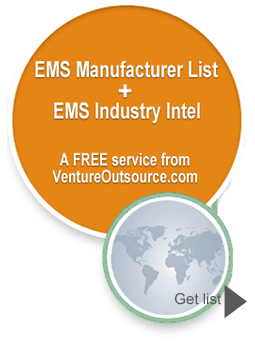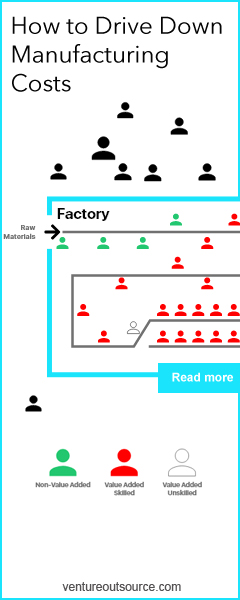In this exclusive interview, VentureOutsource.com speaks with influential business author Daniel Pink (www.danpink.com). His latest book, A Whole New Mind, explains the six abilities or talents individuals and companies must develop to compete in an outsourced and automated global economy.
Daniel Pink is also a contributing writer at Wired. He has also published articles on business, technology, and economic transformation appearing in The New York Times, Harvard Business Review, and Fast Company.
Transcripts from our discussion below reveal Pink’s insight into the Asian business mindset; workforce and economic challenges facing the West, professional development and benefits derived from right-brained thinking, mechatronics, and more.
As a free agent himself Daniel Pink’s last real job was in the White House (1995-97) where he was chief speechwriter for Vice President Al Gore. Dan also worked as an aide to U.S. Secretary of Labor Robert B. Reich; as an economic policy staffer in the U.S. Senate, in India as a legal researcher, and in Botswana where he built latrines.
Dan received a B.A., with honors in linguistics, from Northwestern University. He also graduated from Yale Law School and is happy to say he never practiced law.
VentureOutsource.com: In your recent book, A Whole New Mind you coin the term ‘Conceptual Age’ and you discuss some of the skills many workers will need to remain competitive as industrialized nations move into this new era. What types of jobs will be abundant in the West in the Conceptual Age? What about in Asia?
Pink: Here in the West, we’re moving away from an economy built on the logical, linear, left-brain thinking of the Information Age to an economy built on the inventive, empathic, artistic abilities of the Conceptual Age. The scariest ‘word’ in the world of work today is ROUTINE. Any job that is routine, that can be reduced to a set of clear rules and, therefore, can be automated or done by some skilled person half-way around the world — is at risk.
By contrast, work that requires high-concept, high-touch skills, aptitudes that are much harder to outsource or automate, will become more abundant and significant. The most essential of these right-brain abilities are Design, Story, Symphony, Empathy, Play and Meaning.
Design is the ability to recognize or create something that is not simply functional, but emotionally engaging.
Story is the ability to organize facts and ideas into a narrative – it’s the essence of persuasion, communication and self-understanding.
Symphony is the antidote to the Information Age’s emphasis on specialization: it’s the ability to put disparate pieces (from disparate disciplines) together in a unique and arresting whole.
 |
Daniel Pink Influential Business Author |
Empathy is the ability to understand what makes our colleagues and clients tick.
Play – we all know what play is: the problem here is that once we grow up, we forget to include this essential human aptitude in our work.
Meaning is what everything else is all about. Whatever work we do, we need to understand how it fits into our most significant human desires: purpose, transcendence and spiritual fulfillment.
Now, all of this does NOT mean that jobs in the traditionally left-brain fields of engineering will dry up in the West. What it does mean is that talented engineers of all kinds must develop their right-brain skills and incorporate those skills into the work they do every day.
In Asia, where the number of high-skilled professionals is exploding, you’ll find more of a mix of routine and right-brain work. A large number of white-collar, left-brain jobs have moved, and will continue to move, from the West to Asia and other non-western countries as the cost of communicating across the globe falls to zero and as those countries mint millions of talented, capable knowledge workers.
At the same time, while thousands of these new, middle-class workers take on routine white-collar work for western companies, others in those countries will use conceptual age, right-brain skills to develop their own products; services, and companies for the global marketplace.
VentureOutsource.com: Mechatronics can be defined as the synergistic combination of mechanical engineering, electronic engineering, and software engineering with the purpose of creating and managing advanced; abstract, hybrid machines that are automated from an engineering perspective. What are some of the ways you see this emerging industry changing the manner in which electronics product companies will attract, retain and develop capable employees? (Note: Aerial Venn diagram below from Rensselaer Polytechnic Institute Website)

Pink: Mechatronics (which, I admit, I’ve only first heard of here) looks to be the embodiment of the Conceptual Age aptitude – Symphony. Anyone working in this emerging field will need to be able to synthesize complex ideas and information from disparate fields of engineering.
The emergence of this new kind of work is why cutting edge schools like Georgia Tech recently revamped their admissions policies to recruit engineering students who are also musicians.
Georgia Tech’s President, C. Wayne Clough, explains, “The idea was that people who have other interests tend to be able to communicate, tend to be more social, tend to ask for help more readily when they need help…tend to be able to tie things together from different disciplines and fields. In other words, these are the kinds of people who will excel in fields like mechatronics.”
VentureOutsource.com: Which influences do you see Asia contributing (positive and negative) to the global economic landscape as Western workers compete for jobs regionally and overseas?
Pink: Asia, as I’ve explained, has become an incredible source of inexpensive, high-skilled, routine left-brain work. That’s good news and bad news for western workers. It means that lots of routine, white collar jobs will be outsourced to Asia and elsewhere.
But the good news is that much of the work that remains here will be less routine and will compel us to sharpen and employ the right-brain aptitudes that all of us possess.
At the same time, Asia is also a source of inspiration for western companies seeking to provide goods and services for the Conceptual Age.
Asian cultures are deeply, deeply rooted in design and meaning. The idea that any item or service offered must not only be functional but also be infused with beauty and meaning is much more ingrained in Asian cultures than it is here in the west.
VentureOutsource.com: Please share your thoughts on two major, global automobile manufacturers with extended supply chains: General Motors (GM) and Toyota — what ails GM, while looking at Toyota’s steady rise. From a creative, right-brain perspective, which abilities do you feel contributed most to each company’s current performance in the automotive market? What specific types of ‘thinking’ or behavior should a potential automotive supplier assimilate if it wishes to engage in business with a company like Toyota?
Pink: General Motors has been having a tough time over the past few years. And that’s for a whole host of reasons.
One reason is that if you look at GM’s books, it seems like the company is in the retiree health benefits business — and sells cars to finance that. But, leaving aside the business model for a moment, I’m actually pretty bullish on GM in the long run. Why? One of the executives charged with turning General Motors around is an auto industry legend named Bob Lutz. He’s said — and these are his words — that GM has tried running the company in a left-brain way and that wasn’t enough.
Lutz says the company now has to have a greater right-brain emphasis — that GM is in the art and entertainment business. This might sound strange, but he recognizes the U.S. now has more automobiles than licensed drivers. So, they’re putting a premium on design, even trolling art and design colleges to hire sculptors.
Meanwhile, the enormous success of Toyota’s hybrid cars here in the U.S. is a perfect example of the Conceptual Age’s premium on meaning.
Americans have flocked to purchase the Prius and other Toyota hybrids even though the savings at the gas pump would not offset the higher price of the hybrid engines for several years. Why? Because purchasing a hybrid is not just about buying transportation. Purchasing a hybrid, for many Americans, is a meaningful step toward improving the environment, a small but significant contribution, in their eyes, toward saving the world from global warming.
It’s a statement, a stance. A purchase with meaning. And, it was Toyota, a Japanese company, who had the wisdom to understand this about American consumers. (Well, until recently) Couple this with Toyota’s relentless (and very left-brained) emphasis on quality improvement –and you’ve got a very whole-minded automaker.
Get list of EMS manufacturers for your requirements (Its free)
Save time and money. Find quality EMS manufacturers. Fast. Venture Outsource has a massive, global database of contract electronic design and manufacturing capabilities. Speak with a Provider Advisor.
“Was able to very quickly find details on the important elements of setting up EMS and ODM partnerships, talked with an advisor for personalized info on quality providers matching our requirements while getting up to speed quickly about the industry and connect with key staff from like-minded companies and potential partners. Great resource.”
— Jeff Treuhaft, Sr. Vice President, Fusion-IO
Advisors tell you matches we find for your needs, answer your questions and, can share EMS industry knowledge specific to your industries and markets.






